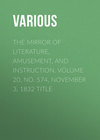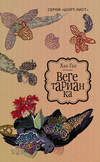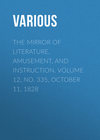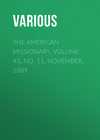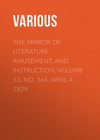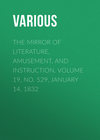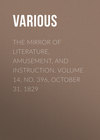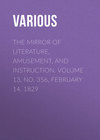Czytaj książkę: «The Mirror of Literature, Amusement, and Instruction. Volume 20, No. 574, November 3, 1832 Title», strona 5
He had remarked the eagles also while they were engaged in fishing. They chose a small ford upon the rivulet which connects Glencullen with Glandullagh, and posted on either side waited patiently for the salmon to pass over. Their watch was never fruitless,—and many a salmon, in its transit from the sea to the lake, was transferred from his native element to the wild aërie in the Alpine cliff; that beetles over the romantic waters of Glencullen.
[The volumes are handsomely printed, and embellished with aqua-tint plates and clever vignettes: some of the latter, by Bagg, are spirited performances on wood.]
PETER THE GREAT
[What a mine of adventure and incident is the life of this extraordinary man. A modern French writer enumerates 95 authors who have treated of his actions, and concludes the list with et cetera threefold. What a field for the editors of the compilation libraries—wherein they may store their little garners or volumes to advantage. Such has the editor of the Family Library done in the volume before us; although he has only consulted one-fourth of the above number of authorities for his memoir of the life of the Tzar. He prefaces with the modest observation that he has done little more than bring together and arrange the scattered fragments of Histories, Lives, Anecdotes, and Notices, in manuscript and in print, "of one of the most extraordinary characters that ever appeared on the great theatre of the world, in any age or country;—a Being full of contradictions, yet consistent in all that he did; a promoter of literature, arts, and sciences, yet without education himself; the civilizer of his people, 'he gave a polish,' says Voltaire, 'to his nation, and was Himself a savage; he taught his people the art of war, of which he was himself ignorant; from the first glance of a small cock-boat, at the distance of five hundred miles of the nearest sea, he became an expert ship-builder, created a powerful fleet, partly constructed with his own hands, made himself an active and expert sailor, a skilful pilot, a great captain: in short, he changed the manners, the habits, the laws of the people, and very face of the country." How different is this course of activity to the usual luxurious lives of the sovereigns of civilized countries: how ill assort Peter's "savage" notions with the accomplished ease and personal elegance of a succeeding autocrat: how wide is the contrast between Peter's ship-building education, and the youth of a prince passed amidst court corruptionists—or pilotage over the boundless ocean, and launching gilded pleasure-boats upon an unruffled lake; personally watching the welfare of his subjects, or slinking into retirement, and leaving their interests to the intrigues of party. Yet, such are a few of the opposite characteristics—the every-day occupations—of the great Tzar of Russia, and of the kingships of the last and present centuries.
The events of the life of Peter may be well known in detail to the reader of the history of modern Europe. Yet they must be gathered from many volumes; while in the above little book we have them brought in amusing and sufficiently copious narrative, within 350 pages. We have here the Tzar's war with Sweden—Narva, Pultowa, and the Pruth; but the incidents that will prove most interesting to the Family readers are the domestic habits—the unkingly life of Peter; and above all, his visit to England—how he drank deeply of pepper and brandy, lodged in Buckingham-street, Strand; spoiled Mr. Evelyn's holly hedge at Sayes; and peeped from the roof of the House of Lords at the King upon his throne. We shall therefore endeavour to abridge a few of these entertaining anecdotic details from the chapter devoted to the Tzar's stay in England.]
Two ships of war and a yacht, under the orders of Admiral Mitchell, were despatched to Helvoetsluys to bring over the Tzar, who, with his suite, consisting of Menzikoff and some others, whose names are not mentioned, embarked at that port on the 18th of January, 1698, and on the 21st reached London. Here no secret was attempted to be made of his rank, but he requested to be treated only as a private gentleman; and it is remarkable enough that, though he paid frequent visits to the King, and attended his court, his name never once appears in the only official paper which then, as indeed now, was and is in existence, the London Gazette. Lord Shrewsbury, at this time, was Secretary of State for Foreign Affairs; but as the Tzar came not in any public character, he appears to have been placed under the especial charge of the Marquess Carmarthen, who was made lord president of the Council in the following year. Between this nobleman and Peter a very considerable intimacy took place, which was uninterrupted during the Tzar's abode in England. A large house was hired for him and his suite at the bottom of York-buildings where, it is stated in a private letter, the Marquess and he used to spend their evenings together frequently in drinking "hot pepper and brandy." The great failing of Peter, indeed, was his love of strong liquors. We find in one of the papers of the day, that he took a particular fancy to the nectar ambrosia, "the new cordial so called, which the author, or compounder of it, presented him with, and that his Majesty sent for more of it."
Of the proceedings of the Tzar, during the four months he remained in England, very little is recorded in the few journals or other publications of that day; the former consisting chiefly of the Postmaster, the Postman, and the Postboy.
In the Postboy it is stated that, on the day after his arrival, the Tzar of Muscovy was at Kensington, to see his Majesty at dinner, as also the court; but he was all the while incognito. And on the Saturday following he was at the playhouse, to see the opera; that on the Friday night the revels ended at the Temple, the same being concluded by a fine masquerade, at which the Tzar of Muscovy was present; that on the following Sunday he went in a hackney-coach to Kensington, and returned at night to his lodgings in Norfolk-street,7 where he was attended by several of the King's servants.
His movements, during the rest of the month, were a journey to Woolwich and Deptford, to see the docks and yards; then to the theatre, to see the Rival Queens, or Alexander the Great; to St. James's, to be present at a fine ball; and, it is further stated that he was about to remove from Norfolk-street (York buildings) to Redriff, where a ship was building for him; and that he was about to go to Chatham, to see a man-of-war launched, which he was to name; and that on the 15th of February, accompanied by the Marquess of Carmarthen, he went to Deptford, and having spent some time on board the "Royal Transport," they were afterwards splendidly treated by Admiral Mitchell. These are the principal notices concerning the Tzar Peter contained in the Postboy.
It is evident that London could not be very agreeable to him, on two accounts; first, because his great object in coming here was to see our dock-yard establishments, and to profit also by observing our mode of making draughts of ships, and laying them off in the mould-loft; and to acquire some knowledge in the theory of naval architecture and navigation, which he had heard, when in Holland, was superior to what he had seen or could obtain in that country, though it was assumed that the mechanical part of finishing and putting together a ship was there fully equal, if not superior, to ours.
In the next place, he was equally annoyed by the crowds he was continually meeting in the streets of London, as he had been in Amsterdam, and which he could not bear with becoming patience. It is said that, as he was one day walking along the Strand, with his friend the Marquess of Carmarthen, a porter, with a hod on his shoulder, rudely pushed against him and drove him into the kennel. He was extremely indignant, and ready to knock him down; but the Marquess interfering, asked the man what he meant, and if he knew whom he had so rudely run against, and "that it was the Tzar." The porter, turning round, replied, with a grin, "Tzar! we are all Tzars here." But that which annoyed him most of all, was the intrusion of our countrymen into his lodgings, and into the room even where he was eating, to which they gained access through the king's servants. Disgusted at their impertinent curiosity he would sometimes rise from table, and leave the room in a rage. To prevent this intrusion, he strictly charged his domestics not to admit any persons whatever let their rank be what it might. A kind of forced interview, however, was obtained by two Quakers, the account of which, as given by one of them, is singular and interesting.
One month's residence having satisfied Peter as to what was to be seen in London, and having expressed a strong desire to be near some of the King's dockyards, it was arranged that a suitable residence should be found near one of the river establishments; and the house of the celebrated Mr. Evelyn, close to Deptford Dock-yard, being about to become vacant, by the removal of Admiral Benbow, who was then its tenant, it was immediately taken for the residence of the Tzar and his suite; and a doorway was broken through the boundary wall of the dock-yard, to afford a direct communication between it and the dwelling-house. This place had then the name of Saye's Court. It was the delight of Evelyn, and the wonder and admiration of all men of taste at that time. The grounds are described, in the life of the Lord Keeper Guildford, "as most boscaresque, being, as it were, an exemplary of his (Evelyn's) book of forest trees." Admiral Benbow had given great dissatisfaction to the proprietor as a tenant, for he observes in his Diary—"I have the mortification of seeing, every day, much of my labour and expense there impairing from want of a more polite tenant." It appears, however, that the princely occupier was not a more "polite tenant" than the rough sailor had been, for Mr. Evelyn's servant thus writes to him,—"There is a house full of people right nasty. The Tzar lies next your library, and dines in the parlour next your study. He dines at ten o'clock and six at night; is very seldom at home a whole day; very often in the King's yard, or by water, dressed in several dresses. The King is expected there this day; the best parlour is pretty clean for him to be entertained in. The King pays for all he has."8 But this was not all: Mr. Evelyn had a favourite holly-hedge, through which, it is said, the Tzar, by way of exercise, used to be in the habit, every morning, of trundling a wheel-barrow. Mr. Evelyn probably alludes to this in the following passage, wherein he asks, "Is there, under the heavens, a more glorious and refreshing object, of the kind, than an impregnable hedge, of about four hundred feet in length, nine feet high, and five in diameter, which I can still show in my ruined garden at Saye's Court (thanks to the Tzar of Muscovy), at any time of the year, glittering with its armed and variegated leaves; the taller standards, at orderly distances, blushing with their natural coral? It mocks the rudest assaults of the weather, beasts, or hedge-breakers,—et ilium nemo impune lacessit."9
Alas! for the glory of the glittering hollies, trimmed hedges, and long avenues of Saye's Court; Time, that great innovator, has demolished them all, and Evelyn's favourite haunts and enchanting grounds have been transformed into cabbage gardens; that portion of the Victualling-yard where oxen and hogs are slaughtered and salted for the use of the navy, now occupies the place of the shady walks and the trimmed hedges, which the good old Evelyn so much delighted in; and on the site of the ancient mansion now stands the common parish workhouse of Deptford Stroud.
We have little evidence that the Tzar, during his residence here, ever worked as a shipwright; it would seem he was employed rather in acquiring information on matters connected with naval architecture, from that intelligent commissioner of the navy and surveyor, Sir Anthony Deane, who, after the Marquess of Carmarthen, was his most intimate English acquaintance. His fondness for sailing and managing boats, however, was as eager here as in Holland; and these gentlemen were almost daily with him on the Thames, sometimes in a sailing yacht, and at others rowing in boats,—an exercise in which both the Tzar and the Marquess are said to have excelled. The Navy Board received directions from the Admiralty to hire two vessels, to be at the command of the Tzar, whenever he should think proper to sail on the Thames, to improve himself in seamanship. In addition to these, the King made him a present of the "Royal Transport," with orders to have such alterations and accommodations made in her, as his Tzarish Majesty might desire, and also to change her masts, rigging, sails, &c., in any such way as he might think proper for improving her sailing qualities. But his great delight was to get into a small decked boat, belonging to the Dock-yard, and taking only Menzikoff, and three or four others of his suite, to work the vessel with them, he being the helmsman; by this practice he said he should be able to teach them how to command ships when they got home. Having finished their day's work, they used to resort to a public-house in Great Tower-street, close to Tower Hill, to smoke their pipes and drink beer and brandy. The landlord had the Tzar of Muscovy's head painted and put up for his sign, which continued till the year 1808, when a person of the name of Waxel took a fancy to the old sign, and offered the then occupier of the house to paint him a new one for it. A copy was accordingly made from the original, which maintains its station to the present day, as the sign of the "Tzar of Muscovy," looking like a true Tartar.
